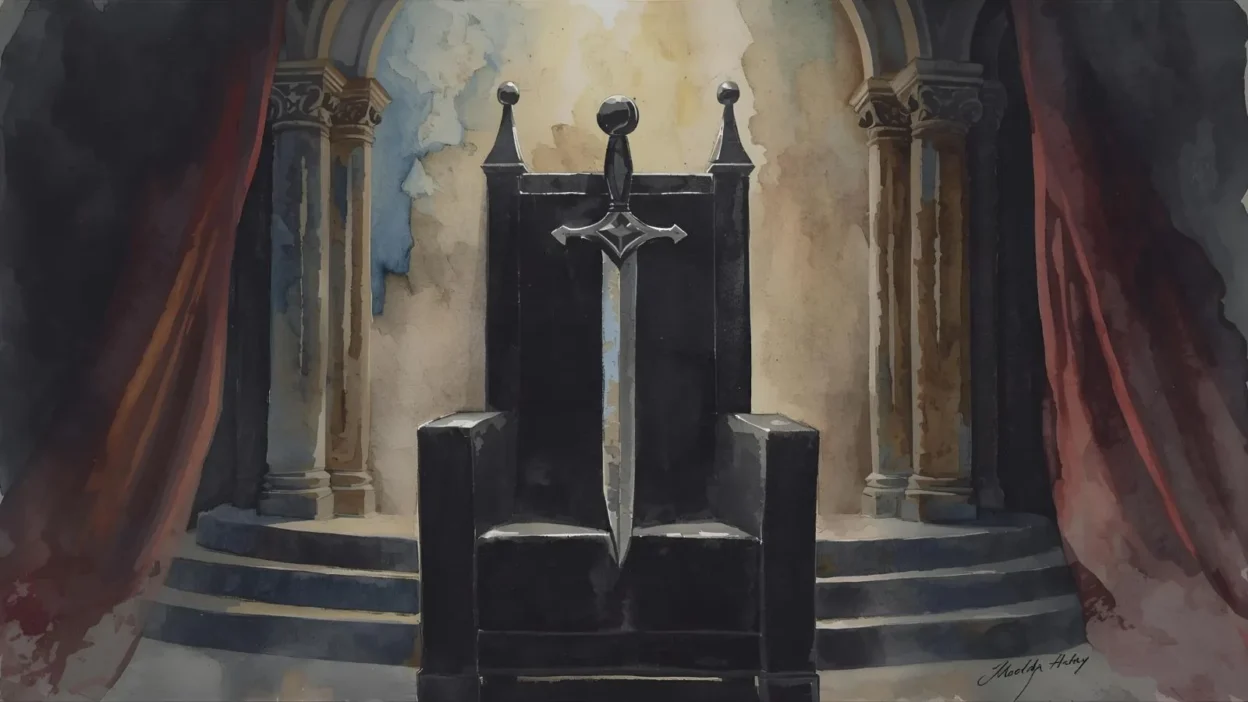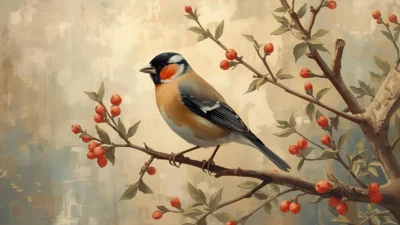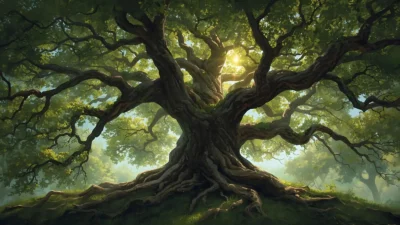Have you ever had a dream so vivid it left you shaken the next day? I once woke up after seeing a blood-soaked hand reaching toward me in the dark, my heart pounding. That image haunted me, even though I knew it wasn’t real. It reminded me of Macbeth, where Shakespeare masterfully uses symbolism—especially blood, daggers, and sleep—to reveal deep truths about guilt, power, fear, and the fragile human spirit.
In this article, we’ll explore the symbolism in Macbeth through spiritual and emotional lenses. You’ll learn how symbols in the play—especially animals, blood, and weather—aren’t just for drama. They reflect something very real inside us.
Let’s decode the spiritual meaning behind the symbols in this haunting tale.
Blood Symbolism in Macbeth
Blood is one of the most powerful symbols in Macbeth. At first, blood represents bravery and honor. Macbeth is a war hero, soaked in the blood of enemies. But after he kills King Duncan, blood turns into a symbol of guilt and spiritual torment.
Lady Macbeth says, “A little water clears us of this deed.” Yet soon after, she imagines her hands forever stained with blood, saying, “Out, damned spot!”
Emotionally, blood is the weight of conscience. Spiritually, it reflects the idea that our actions leave marks on our soul that no water can wash away. It shows how violence and wrongdoing can follow us, changing how we see the world—and ourselves.
Dagger Symbolism in Macbeth
Before Macbeth kills Duncan, he sees a floating dagger and says, “Is this a dagger which I see before me?” This dagger isn’t real. It’s a symbol of temptation and inner conflict.
Macbeth’s mind is torn. He’s not yet a killer, but the dagger is a sign of the evil path he’s about to choose.
This moment teaches us that sometimes, our darkest desires appear as signs—tempting, vivid, and dangerous. The dagger is like the first step into a spiritual downfall, one led by ambition, fear, and pressure.
Sleep Symbolism in Macbeth
After murdering Duncan, Macbeth cries out: “Macbeth does murder sleep.”
Sleep in Macbeth symbolizes peace, innocence, and healing. When Macbeth kills Duncan, he doesn’t just kill a king—he kills his own ability to rest.
Lady Macbeth, too, becomes sleep-deprived and mentally broken. Her guilt causes sleepwalking and hallucinations.
Spiritually, this reflects how guilt robs us of inner peace. If we betray our values, even dreams turn against us. Sleep reminds us that true rest only comes when our heart is clean.
Weather Symbolism in Macbeth
From the very first scene—“When shall we three meet again? In thunder, lightning, or in rain?”—weather sets the mood. Storms and darkness always appear when evil is near.
When Duncan is killed, the night is full of strange sounds. Horses go wild, and the earth shakes.
In spiritual terms, weather shows the universe reacting to human actions. It’s a symbol that nature itself feels when something deeply wrong has occurred.
Emotionally, it reminds us that wrong choices don’t just affect us—they ripple into the world around us.
Example of Symbolism in Macbeth
Let’s break it down simply:
➡️ Blood = Guilt
➡️ Dagger = Temptation
➡️ Sleep = Peace or innocence
➡️ Storms = Chaos or moral disorder
➡️ Animals (like owls or horses) = Spiritual messengers or omens
Each symbol tells us something hidden. Just like dreams or signs in your own life, these symbols in Macbeth reflect a deeper truth beneath the surface.
Examples of Symbolism in Macbeth
Here are a few powerful symbolic moments:
- The Owl’s Scream – Right after Duncan’s death, Lady Macbeth hears an owl shriek. Owls were seen as omens of death, showing how nature “knows” what’s happened.
- The Floating Dagger – Macbeth follows the dagger into murder. It symbolizes his loss of free will.
- Lady Macbeth’s Blood-Stained Hands – She can’t wash off her guilt, even in her mind. This symbolizes spiritual corruption.
These examples show how Shakespeare uses ordinary images to show deep emotional and moral truths.
Symbolism in Macbeth Act 1
Act 1 is rich with spiritual signals:
- The Witches: They represent dark spiritual forces—the push toward temptation and chaos.
- “Fair is foul, and foul is fair”: This confusing line warns us that the play will blur good and evil.
- Stormy Weather: Whenever the witches appear, the weather turns ugly. This suggests that spiritual storms are coming.
This act sets the tone: When we betray truth and goodness, the world becomes twisted.
Animal Symbolism in Macbeth
Animals in Macbeth carry deep meanings:
- Owls: Symbols of death and spiritual darkness.
- Horses: After Duncan’s death, they go wild and eat each other—a sign of moral collapse.
- Falcons and Hawks: The natural order is broken when Macbeth kills Duncan, like a weaker animal killing a stronger one.
Spiritually, animals in Macbeth represent the natural balance between good and evil. When evil wins, nature rebels.
Bloody Dagger Symbolism in Macbeth
Let’s revisit the bloody dagger, one of the most famous images.
At first, the dagger is clean—just an idea. But soon, Macbeth sees blood on it, imagining what he’s about to do.
The bloody dagger is the moment his soul turns. It’s no longer just a thought; it becomes spiritual reality.
This symbol warns us that even our darkest thoughts, if fed, can become real actions—with real consequences.
Real-Life Scenarios of Symbolism
1. The Guilty Sleepless Night
A woman tells a white lie at work that causes someone else to get blamed. That night, she can’t sleep. Her restlessness is like Macbeth’s—guilt eating away at peace.
2. The Stormy Morning
A teenager makes a decision that hurts someone close. The next morning, a literal storm rolls in. It feels like the world is reflecting their inner pain—just like Macbeth’s weather.
3. The Tempting Voice
A man sees a tempting shortcut at work—cheat a little to get ahead. It feels like a “sign” or idea pointing the way. It’s his “dagger”—leading him down the wrong path.
FAQs About Symbolism in Macbeth
1. Why is blood a recurring symbol in Macbeth?
Blood shows the stain of guilt and the emotional toll of violent choices. It begins as heroic but ends as horrifying.
2. What does sleep represent in Macbeth?
Sleep stands for inner peace, innocence, and healing. Macbeth loses all three after his crime.
3. What is the spiritual meaning of the weather in the play?
Storms and darkness reflect moral chaos. They show the world reacting to evil acts.
4. Why do animals act strangely after Duncan’s murder?
Animals symbolize nature’s balance. When Macbeth breaks the moral order, animals go wild—like the world is spiritually disturbed.
5. How can understanding symbolism help us today?
Symbols are everywhere—in dreams, nature, feelings. Learning from Macbeth helps us read the signs in our own life and make emotionally wiser, spiritually honest choices.
Conclusion:
Macbeth is more than a tragedy—it’s a spiritual warning.
Each symbol—blood, daggers, weather, sleep, animals—teaches us about our own struggles with temptation, guilt, and redemption. When we chase power or lie to ourselves, we lose something deeper: our peace, our sleep, and our sense of self.
But there’s hope. The moment we become aware of the symbols—whether in life or literature—we can begin the journey back. We can choose truth over fear. Light over shadow.
Let Macbeth be a mirror. What symbols are appearing in your life? And what are they asking your spirit to learn?




